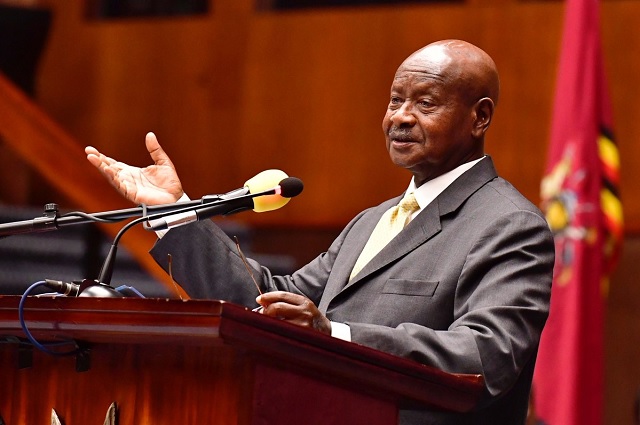The national minimum wage debate has resurfaced in Uganda, with President Yoweri Museveni now steering discussions aimed at establishing a legal wage floor for all workers. This move signals a policy shift in a labor market often criticized for low, unregulated pay and poor working conditions.
During the launch of TCL electronics products last week, State Minister for Finance (Investment) Evelyn Anite confirmed the President’s directive. She stated that the Ministry of Gender, Labour and Social Development has been instructed to lead tripartite consultations involving government, employers, and employee representatives.
Museveni Demands Worker Protection and Fair Pay
Anite highlighted how the President’s renewed interest in wage reform stems from Uganda’s progress in attracting investment and creating jobs. “The President is leading the discussions. Previously, we didn’t push for a wage law because the focus was on job creation,” she said.
Now that Uganda has attracted both domestic and foreign investors, Anite emphasized it is time to ensure fairness. “It is unjust for someone to work from 6 AM to 5 PM for a small, unregulated salary,” she remarked. The national minimum wage, she added, is meant to protect workers from such exploitation.
No Legally Enforced Minimum Wage Since 1984
Uganda’s last statutory wage rate, set in 1984, was Shs 60,000 per month. Despite Parliament passing a Minimum Wage Bill in 2015, the President declined to assent to it, fearing it would hurt investment. Critics argue that without an enforceable minimum wage, workers remain exposed to exploitation and poverty.
Anite defended the earlier delay, citing a lack of jobs then. But she acknowledged that over 1.2 million new jobs have since emerged, creating the right conditions for establishing a fair wage system.
Working Conditions in Manufacturing Under Scrutiny
Despite claims of job creation, many roles—especially in the construction and manufacturing sectors—remain informal and underpaid. Reports show that workers often receive as little as Shs 5,000 to 10,000 per day, without contracts or social protections.
At the TCL electronics launch, the Chinese-owned Tian Tang Group was spotlighted for employing 250 workers in Mbale. The company assembles appliances such as TVs, fridges, and woofers. It plans to expand its workforce as a new refrigerator plant comes online.
Jiakun Luke Wang, director of Tian Tang Group, said job creation remains a top priority but did not comment on wage structures.
Tripartite Forum to Drive Policy Reform
The Ministry of Gender will soon convene a tripartite wage-setting forum to harmonize views from government, employers, and workers’ unions. The forum is expected to recommend a living wage that considers Uganda’s current economic realities and inflationary trends.
Labour unions and civil society organizations welcomed the renewed momentum. They argue that wage regulation would empower workers, reduce exploitation, and improve national productivity. However, business leaders warn that rigid laws could deter investment and raise operational costs.
Wider Economic Context for Wage Discussions
The renewed national minimum wage talks come amid broader economic debates affecting labor markets. Recent protests by landlords over the monthly EFRIS receipt policy signal rising pressure on informal sector players. In the region, South Africa faces potential U.S. trade penalties, reminding Uganda that economic policy must strike a balance between investor confidence and social justice.
The Ministry of Finance has confirmed that public consultations will be held in Kampala, Jinja, and Mbale. If successful, Uganda may finally implement a minimum wage policy that aligns growth with equity.
Stakeholders, including lawmakers, remain cautiously optimistic. As seen in recent parliamentary debates on the link between low wages, mental health, and workplace stress, the issue of a national minimum wage is now a matter of both economic and social urgency.
As Uganda prepares for a national minimum wage, it’s important to note how economic indicators influence investor and government policy. For example, investor sentiment has recently cooled as Umeme shares stalled at Shs415, a signal that wage and labor reforms must be balanced with investor expectations. Similarly, Uganda’s FY2025/2026 budget prioritizes growth and fiscal expansion, reflecting government intent to strengthen the labor market and promote equitable development.

